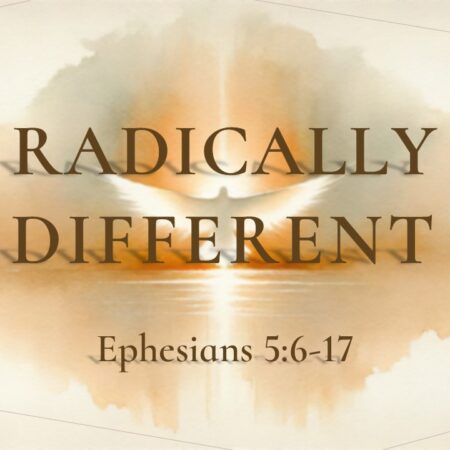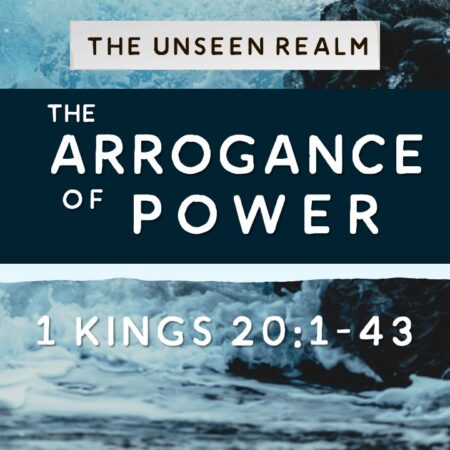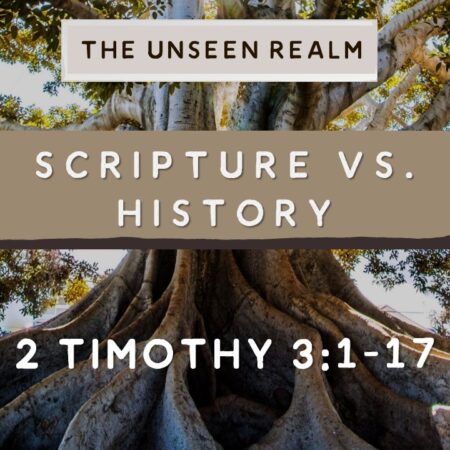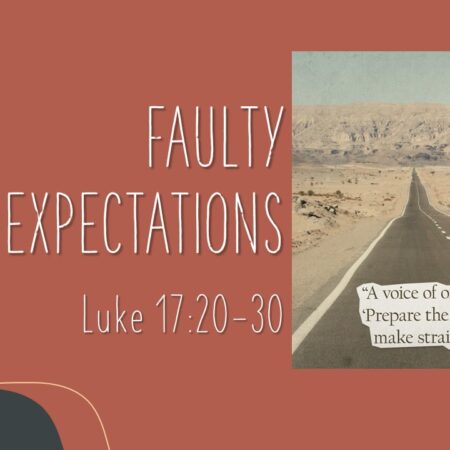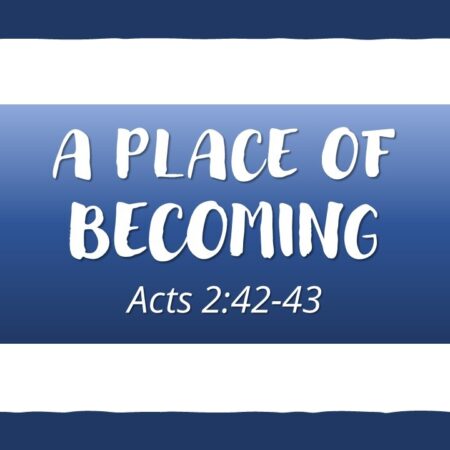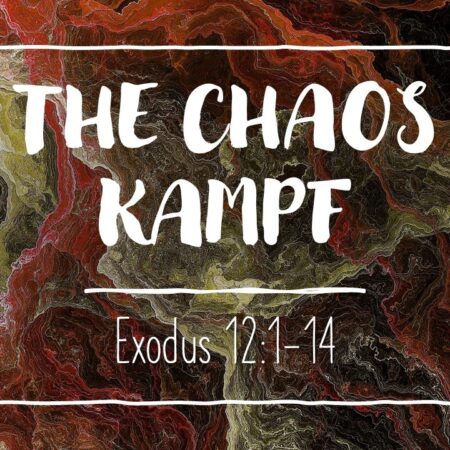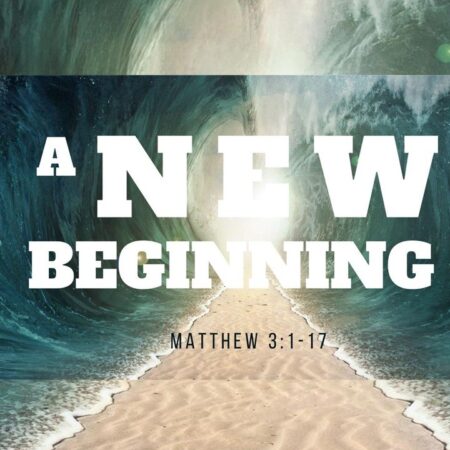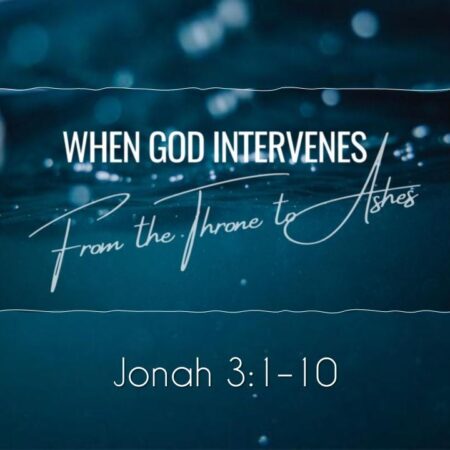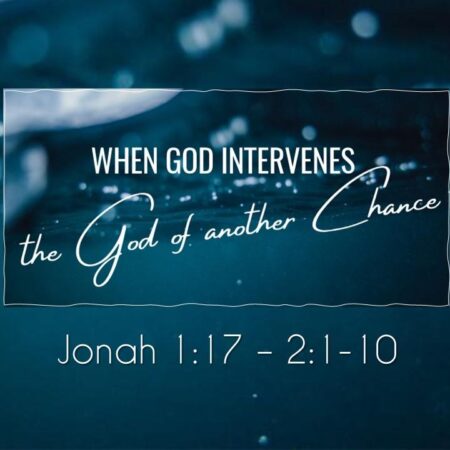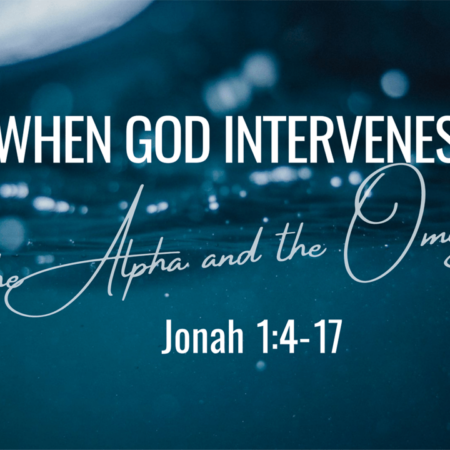Ephesians 5:6-17 2 Corinthians 6:14-16 Romans 12:2
"Yahweh" Tagged Sermons
1 Kings 20:1-43 Exodus 18:5-11 Hebrews 9:16-22 Michael Heiser (The Unseen Realm) The idea is not at each plague neatly corresponds to an Egyptian deity, only that the powerful acts…
2 Timothy 3:1-17 Genesis 12:1-7; Genesis 14:1-7; Genesis 14:18-23; Exodus 3:13-15; Exodus 2:11-15 Acts 7:22 2 Timothy 3:8-9; 2 Timothy 3:1-8 As Bible believing Christians, or what scholars call ORTHODOX…
Luke 17:20-30 John 1:19-23 Isaiah 40:1-5 Mark 1:9-11 Luke 11:20 Luke 10:18 As Michael Heiser in ‘THE UNSEEN REALM’ explains: God issues four commands. All four commands are grammatically plural…
Chuck Swindoll in his book “The Church Awakening” wrote:
“It is precisely these four areas the adversary will attack so he can disrupt and, if possible, destroy the church. That’s why it’s important to keep our priorities straight. It’s essential that we do not get distracted by all that we CAN do as a church…and stay focused on only what we MUST do as a church. Otherwise we may be attracting a crowd for the wrong reasons.”
Genuine authentic fellowship with other followers of Jesus is the soil for becoming contagious. There are way too many Christians that sit in church every Sunday, they take notes, walk out, and come back next week, to sit, take notes, walk out, and return again next week…
…….UNTIL JESUS COMES BACK. Such Christians will grow stagnant. They come, sit, soak and sour.
Fellowship is much more than coming to church to hear a sermon every Sunday, or engaging in weekly Bible studies, or subscribe to 5 daily devotionals, or to read 5 books a week. Fellowship is physical getting together to share LIVE WITH ONE ANOTHER.
Warren Wiersbe in his book “On Being a Servant of God” writes:
Christian service means invading a battleground, not a playground; and you and I are the weapons God uses to attack and defeat the enemy. When God used Moses’ rod, He needed Moses’ hand to lift it. When God used David’s sling, He needed David’s hand to swing it. When God builds a ministry, He needs somebody’s surrendered body to get the job done.”
Dietrich Bonhoeffer in his book “Life Together” wrote:
“The pious fellowship permits no one to be a sinner. So everybody must conceal his sin from himself and from the fellowship. We dare not be suddenly discovered among the righteous. So we remain alone with our sin, living in lies and hypocrisy. The fact is that we ARE sinners! But it is the grace of the Gospel, which is so hard for the pious to understand, that it confronts us with the truth and says:
You are a sinner, a great, desperate sinner; now come, as the sinner that you are, to God who loves you. He wants you as you are; He wants you alone. “My son, give me thine heart” (Proverbs 23:26). God has come to you to save the sinner. Be glad! This message is liberation through truth. You can hide nothing from God. The mask you wear before men will do you no good before Him. He wants to see you as you are, He wants to be gracious to you. You do not have to go on lying to yourself and your brothers, as if you were without sin; you can dare to be a sinner.”
EXODUS 12:1-14 Exodus 15:11-13 Isaiah 24:19-23 Exodus 24:9-11 Deuteronomy 4 Exodus 24 Isaiah 24 Psalm 82:8 1 Corinthians 15:21-22
Christopher Wright in his book “The mission of God” asks the question:
“How big is our Gospel? If our gospel is the good news about God’s redemption, then the question moves on to, “How big is our UNDERSTANDING OF REDEMPTION?
Where do we turn in the Bible for our understanding of redemption?
If you would have asked a devout Israelite in the Old Testament period “Are you redeemed?” the answer would have been a most definite yes. And if you had asked “How do you know?” you would be taken aside to sit down somewhere while your friend recounted a long and exciting story – THE STORY OF EXODUS.”
Christopher Wright is referring to Exodus 6:6: Say therefore to the people of Israel, “I am the Lord, and I will bring you out from under the burdens of the Egyptians, and I will deliver you from slavery to them, and I will REDEEM you with an outstretched arm and with great acts of judgment.
Repent is not a feeling, repent is an ACTION.
Repentance speaks of a CHANGE OF DIRECTION,
NOT A SORROW OF HEART.
Michael Heiser in “Unseen Realm» comments on this chapter:
“In Isaiah 40:1 we learn that God is the speaker. He issues four commands. All four commands are grammatically plural in Hebrew. That means that Yahweh is commanding A GROUP. The group cannot be Israelites or a collective Israel, since it is Israel that Yahweh is commanding the group to comfort, speak to, and call. You should know the identity of the group by now: THE DIVINE COUNCIL.”
“In response to the commands in Isaiah 40:1-2, a lone response comes:
A VOICE IS CALLING IN THE WILDERNESS, “CLEAR THE WAY OF YAHWEH! MAKE A HIGHWAY SMOOTH IN THE DESERT FOR OUR GOD!” (Isaiah 40:3)
Michael Heiser comments on this scene:
“Like the prophet of old, John the Baptist has “stood in the council and answered the call. To a Jew familiar with the Old Testament, the pattern would not be lost. As had been the case at the time of Isaiah, Yahweh’s council had met in regard to the fate of an apostate Israel. Isaiah had been sent to a spiritually blind and deaf nation. The calling of John the Baptist tells the reader that Yahweh’s Divine Council is in session again, only this time the aim is TO LAUNCH THE KINGDOM OF GOD WITH THE SECOND YAHWEH, NOW INCARNATE, AS ITS POINT MAN.”
“Those who cherish worthless idols abandon their faithful love, but as for me, I will sacrifice to you with a voice of thanksgiving. I will fulfill what I have vowed. Salvation belongs to the Lord.”
Jonah learned this sentence of good theology in a strange college.
Most of the grand truths of God have to be learned by trouble. They must be burned into us with the hot iron of affliction; otherwise we will not truly receive them.
No man is competent to judge in matters of the kingdom of God until he first has been tried – since there are many things to be learned in the depths that we can never know in the heights. We discover many secrets in the caverns of the ocean, which though we had soared to heaven, we could never have known.” Charles Spurgeon
Jonah’s sermon was 5 Hebrew words;
• Jonah gives a time (40 days)
• Nineveh will be overthrown
• He never says how Nineveh will be overthrown
• nor does he mention WHY Nineveh will be overthrown.
• He does not say HOW THEY COULD AVOID THIS DISASTER
• Jonah is there to represent Yahweh yet never mentions Yahweh
John H Walton in his book “The Lost World of Genesis” writes:
“As complicated as translating a foreign language can be, translating a foreign culture is infinitely more difficult. The problem lies in the act of translating. Translation involves lifting the ideas from their native context and relocating them in our own context.
When we move to the level of culture, the same type of problem occurs. The “very act of trying to translate the culture requires taking it out of its context and fitting it into ours.
(However), the minute anyone attempts to translate the culture, we run the risk of making the text communicate something it never intended.“
Eventually John Walton arrives at the conclusion that:
“We can begin to understand the culture BY BECOMING FAMILIAR WITH ITS LITERATURE.”
In other words, regarding Jonah, we read the story in English and outside it’s cultural context and that’s the reason we read and hear so many different approaches to what God is communicating with this story. Remember, the Bible was never written TO us; the Bible was written to the people that lived during those days when it was written, primarily to ISRAEL.
But the Bible was written FOR us. Jonah was written FOR US, and we can learn the incredible lessons about God and God’s people.
Circumstances are not reliable indicators of WHO GOD IS AND IF HE LOVES US OR NOT. THE ONLY RELIALBE INDICATOR OF WHO GOD IS AND HOW HE LOVE US is to look to Jesus, His life, His death, and His resurrection. That’s exactly what Jesus meant when he answered the religious people of his days WHAT SIGN HE WOULD GIVE THEM. Matthew 12:39-41
Jonah has free will and can run away from the presence of the Lord, just like you and I can if we chose to do so, BUT GOD WILL BRING A STORM INTO THE LIFE OF JONAH THAT WILL AFFECT NOT JUST JONAH, BUT EVERYONE WHO IS IN DIRECT CONTACT WITH JONAH.
Tony Evans in his book “DESTINY” writes:
“The Bible is not an anthology of random stories. The thread that ties the entire Bible together is the theme of the kingdom. God’s goal is to see His rule and authority cover the earth through the expansion of His kingdom. That is God’s purpose in history.
Scripture was penned in order to facilitate that one agenda. The unifying central theme of the Bible is the glory of God through the advancement of His kingdom. Every event, story, and personality from Genesis to Revelation is there to stitch that theme together.
Without that theme, the Bible becomes a collection of disconnected stories that seem to be unrelated to one another.”
To quote Tony Evans one more time
“When you live out your destiny, you don’t measure what you have done according to what someone else has done. Nor is your destiny to be CONFUSED WITH A BUSY LIFE.
When your life is filled with purpose, you measure what you have done according to what you were created to do.”

